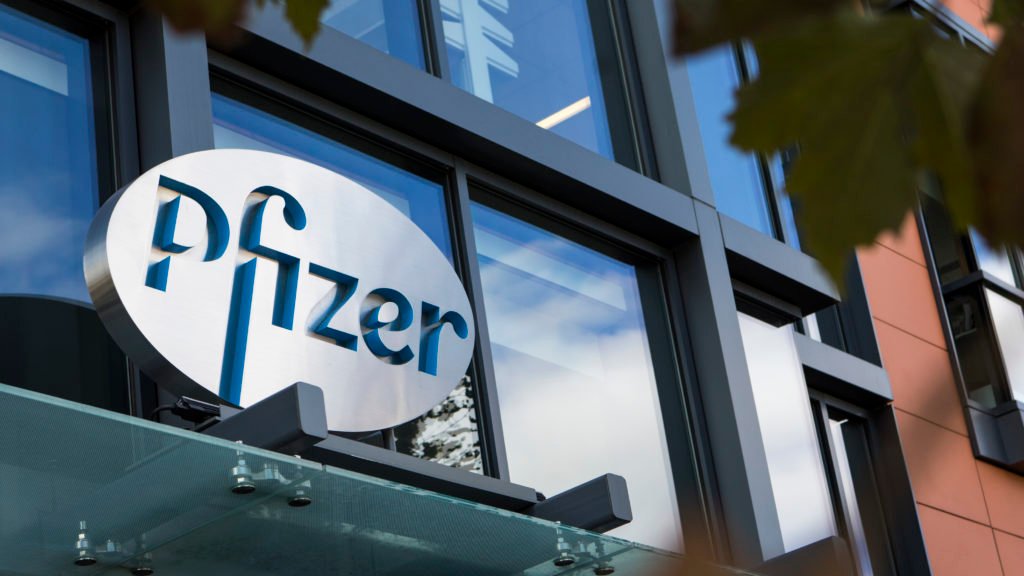
image courtesy: Stat
Pfizer Inc.on 9 April 2020, announced important advances in the battle against the global COVID-19 pandemic. Some of the key achievements are;
As outlined in Pfizer’s five-point plan, the company has been collaborating across the healthcare innovation ecosystem ranging from large pharmaceutical companies to the smallest of biotech companies, from government agencies to academic institutions to address the COVID-19 global health care crisis. Researchers and scientists have been relentlessly working to develop an investigational antiviral compound to treat SARS-CoV-2, which causes the current pandemic of coronavirus infections (COVID-19), a vaccine to prevent infection as well as evaluating other therapies that have scientific potential to help infected patients fight the virus.
“We are committed to making the impossible possible,” said Dr Albert Bourla, Chairman and CEO. “In the spirit of the Five Point Plan that Pfizer issued, we are facing this public health challenge head-on by collaborating with industry partners and academic institutions to develop potential novel approaches to prevent and treat COVID-19. Our researchers and scientists also have been exploring potential new uses of existing medicines in Pfizer’s portfolio to help infected patients globally. We are leaving no stone unturned as we explore every option to help provide society with a treatment or cure.”
Pfizer announced key advances in its commitment to protect humankind from this escalating pandemic and prepare the industry to better respond to future global health crises.
Anti-Viral Compound Screening
Pfizer confirmed a lead compound and analogues are potent inhibitors of the SARS-CoV-2 3C-like (3CL) protease, based on the results of initial screening assays. In addition, preliminary data suggest the lead protease inhibitor shows antiviral activity against SARS-CoV-2. Consequently, Pfizer will perform pre-clinical confirmatory studies, including further anti-viral profiling and assessment of the suitability of the lead molecule for IV administration clinically. The company is also investing in materials that will accelerate the start of a potential clinical study of the lead molecule to third-quarter 2020, three or more months in advance of earlier estimates, subject to positive completion of the pre-clinical confirmatory studies.
Pfizer’s partnership with BioNTech at Vaccine R&D
Pfizer Inc. and BioNTech SE have entered into a global collaboration agreement to co-develop BioNTech’s potential first-in-class, mRNA-based coronavirus vaccine program aimed at preventing COVID-19 infection. In March 2020, the companies announced a letter of intent to collaborate and began working together at that time.
Analysis of Azithromycin as an Agent with Antiviral Activity
In an effort to share information that could benefit COVID-19 mitigation efforts, Pfizer researchers will publish a review in Clinical Pharmacology and Therapeutics which assesses published in vitro and clinical data regarding azithromycin as an agent with antiviral properties. This open-access review may serve to facilitate the use of azithromycin in future research on COVID-19. Azithromycin is not approved for the treatment of viral infections.
Studying Pfizer’s Existing Medicines for Critical Patient Populations in Need
Pfizer Inc. and the Liverpool School of Tropical Medicine’s Respiratory Infection Clinical Research Group are launching two new studies to provide insights on the interaction between S. pneumoniae and SARS-CoV-2. Pfizer is expected to finalize a research collaboration agreement with Liverpool to provide funding and in-kind laboratory testing support for this research. The studies (SAFER study (SARS-CoV-2 Acquisition in Frontline Health Care Workers – Evaluation to Inform Response) and the FASTER study (Facilitating A SARS CoV-2 Test for Rapid triage)) will help demonstrate whether patients infected with COVID-19 have a higher risk of also developing pneumococcal pneumonia and if having both infections leads to more severe disease and poorer outcomes.
An independent Phase 2 investigator-initiated study (supported by a Pfizer grant) for the use of tofacitinib, an oral Janus Kinase (JAK) inhibitor, in patients with SARS-CoV-2 interstitial pneumonia is planned to be initiated in Italy.
Pfizer is also involved in the study of tofacitinib and potentially other immune modulators in its portfolio.
The company will continue to share information from its portfolio and emerging candidates that could benefit the many companies and organizations who are working quickly to provide solutions to combat this unprecedented healthcare crisis.




